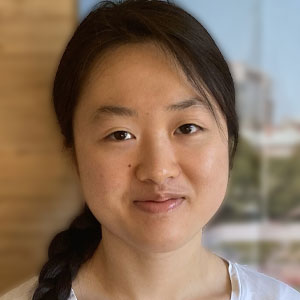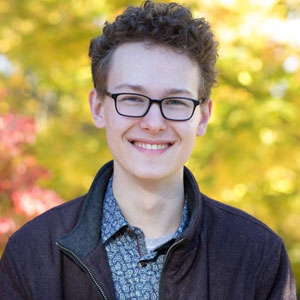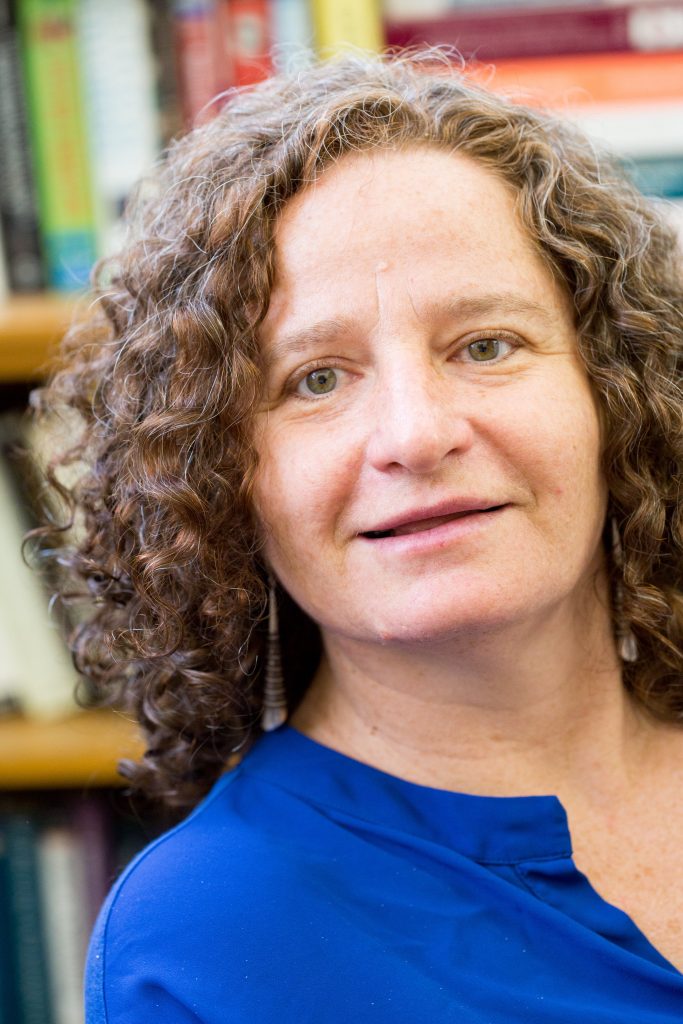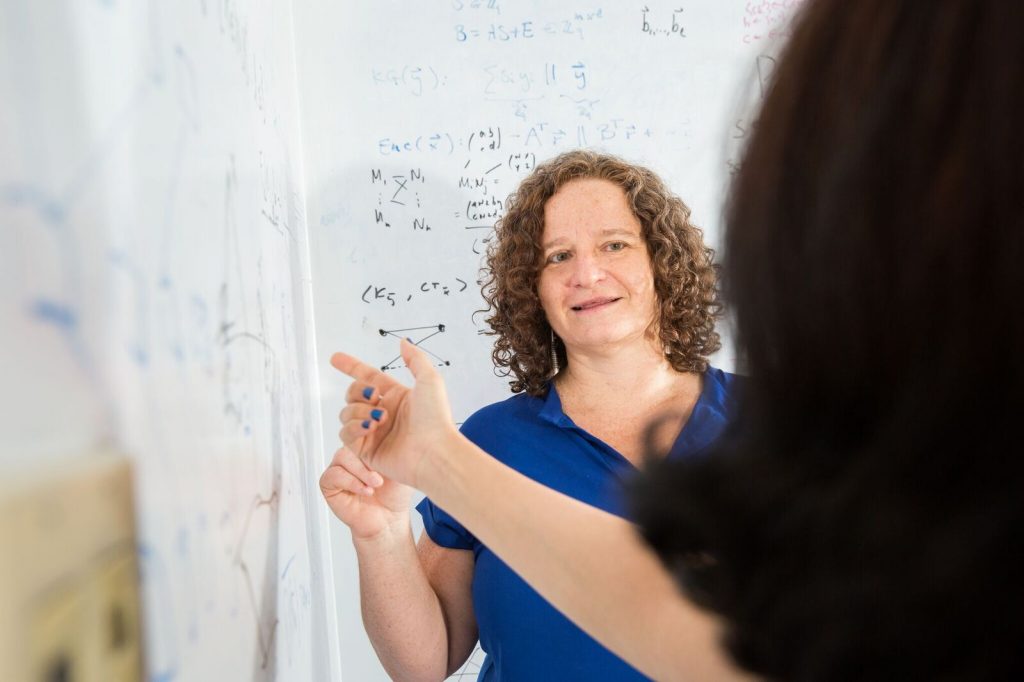Proposals from Mechanical Engineering Professor Matei Ciocarlie and Computer Science Professors Tal Malkin and Carl Vondrick focus on wearable robotic devices for stroke victims, cryptography techniques for LLMs, and improvements in computer vision queries.
Two CS students were selected by the Computing Research Association (CRA) for the 2024 Outstanding Undergraduate Researcher Award for their exemplary dedication to research and academic excellence, earning them a well-deserved commendation. The honorees, Eleanor Lin and Walter McKelvie, have exhibited exceptional skills and commitment in their respective areas of focus within computer science.
 Eleanor Lin (CC ‘24), distinguished herself through groundbreaking research with the Spoken Language Processing Group, where she is advised by Professor Julia Hirschberg. Her work as the lead researcher on the Switchboard Dialogue Act Re-alignment project has showcased innovation and contributed significantly to updating the corpus used to identify regional differences in U. S. speakers–extremely important for Automatic Speech Recognition, particularly in telephony. Eleanor made substantial contributions to multiple Speech Lab projects while concurrently serving as a teaching assistant for computer science and linguistics. She also collaborated with researchers from Rice University, the University of Southern California, and Teacher’s College.
Eleanor Lin (CC ‘24), distinguished herself through groundbreaking research with the Spoken Language Processing Group, where she is advised by Professor Julia Hirschberg. Her work as the lead researcher on the Switchboard Dialogue Act Re-alignment project has showcased innovation and contributed significantly to updating the corpus used to identify regional differences in U. S. speakers–extremely important for Automatic Speech Recognition, particularly in telephony. Eleanor made substantial contributions to multiple Speech Lab projects while concurrently serving as a teaching assistant for computer science and linguistics. She also collaborated with researchers from Rice University, the University of Southern California, and Teacher’s College.
 Walter McKelvie (SEAS ‘24), earned an honorable mention for their remarkable work in theoretical computer science and cryptography. He worked with Professor Tal Malkin and the Crypto Lab on fixing a problem with proof-of-stake blockchains, making a secret leader election “accountable” so that leaders cannot anonymously refuse to publish a block. His dedication to pushing the boundaries of understanding in this field has been commendable, and he greatly contributed to the research by coming up with one of the three paradigms included in the paper and writing several of the technical parts in the paper. McKelvie additionally served as a teaching assistant and collaborated with researchers from Purdue and Harvard.
Walter McKelvie (SEAS ‘24), earned an honorable mention for their remarkable work in theoretical computer science and cryptography. He worked with Professor Tal Malkin and the Crypto Lab on fixing a problem with proof-of-stake blockchains, making a secret leader election “accountable” so that leaders cannot anonymously refuse to publish a block. His dedication to pushing the boundaries of understanding in this field has been commendable, and he greatly contributed to the research by coming up with one of the three paradigms included in the paper and writing several of the technical parts in the paper. McKelvie additionally served as a teaching assistant and collaborated with researchers from Purdue and Harvard.
The honorable mentions serve as a testament to the vibrant research community of the department, where students are encouraged to explore and excel in their chosen fields. Julia Hirschberg, the Percy K. and Vida L. W. Hudson Professor of Computer Science, assembles a team of 15 undergrads with different skills to work on the Speech Lab’s projects. Students can work on data collection and annotation, building large language models (LLMs), or both. Professor Tal Malkin typically has one or two undergraduate students who work on cryptography research. Students need to have mathematical maturity; ideally, they should have taken Malkin’s graduate-level Introduction to Cryptography class.
These recognitions also highlight the department’s commitment to providing students with a robust academic environment that encourages curiosity, creativity, and a passion for discovery.
Columbia University bestows the award to distinguished faculty for their teaching as recognized by the Columbia community. Tal Malkin will receive the award at this year’s commencement.
“Teaching has its own reward above any award and it is something that is very important to me,” said Malkin, an associate professor who joined Columbia in 2003. “I really enjoy teaching so I am very happy to receive this award.”
Malkin can be found in her office, where throughout the day students drop in to talk about their projects or assignments and ask questions. That is one thing that she likes – students that ask questions. She believes that it is through the process of asking questions and working through answers that students actually learn. Through this dialogue she is able to show them the “beauty of computer science theory” and how the material is interesting in its own right.
But, of course, the real joy is when she sees her students discover and understand new concepts. Computer science theory is one of the classes she teaches and it is required for all CS majors. “It isn’t an easy class so when I see that it finally clicks and a student gets it, I feel a sense of accomplishment and pride,” shared Malkin. One could say she hopes that her students “fall in love with computer science” through her class, as she once did as an undergrad in Israel.
“Tal would always explain concepts both intuitively and present material in a variety of ways to appeal to different types of students,” said Daniel Jaroslawicz (CC ’19), a former student and teaching assistant. Considering that the class had over 200 students with different levels of familiarity with computer science theory, achieving that was no simple feat. He continued, “But what really surprised me was Tal’s successful effort to learn the names of as many of her students as possible.”
Aside from teaching undergrads, PhD students are another group under her purview. In this case it is more of mentoring these researchers. Said Malkin, “My PhD students usually study other parts of cryptography so they often teach me more than I teach them.”
Dana Dachman-Soled, a former PhD student, describes Malkin as unassuming and warm but at the same time very assertive, focused, and challenging. Some of her most fond memories with Malkin took place at the Hungarian Pastry Shop where they worked on research projects along with other collaborators. “While the shop is quite dark and often crowded, we did some of our best research there,” said Dana Dachman-Soled (PhD ‘11), who is now an assistant professor at the University of Maryland, College Park. “She was never dismissive of new ideas, thereby encouraging me and her other students to bring them forward and develop them.”
This openness and yearning to impart knowledge to students is reflected in other professional activities. Malkin also heads the education track of the Columbia-IBM Center for Blockchain and Data Transparency. For that, she helps oversee curriculum development for classes on data privacy and blockchain technologies, among other topics.
“I love teaching and my door is always open for anyone that has a question,” said Malkin. “It’s very invigorating to interact with my students and I hope that I have been able to show them how cool computer science can be.”
Tal Malkin is an associate professor of Computer Science at Columbia University, where she directs theCryptography Lab. She received her Ph.D. in Computer Science from the Massachusetts Institute of Technology in 2000, and joined Columbia after three years as a research scientist in the Secure Systems Research Department atAT&T Labs – Research.





